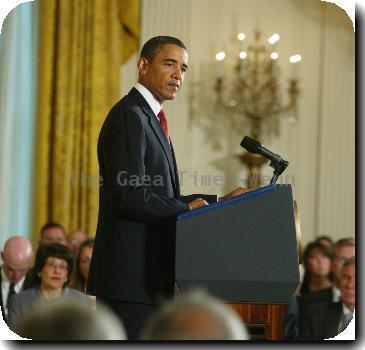US diplomat: Pakistan holding US visas hostage in dispute over size of US operation
By Anne Gearan, APWednesday, December 16, 2009
Diplomat: Pakistan holding up some US visas
ISLAMABAD — Pakistan has held up visas for U.S. diplomats, military service members and others, apparently because of hostility within the country toward the expansion of U.S. operations in Pakistan, a senior U.S. diplomat said Wednesday.
American diplomats have also been stopped repeatedly at Pakistani checkpoints as part of what U.S. officials say is a wider focus on foreigners working in Pakistan. U.S. cars are searched, although diplomats are told to open the trunk but to refuse access to the passenger compartment.
The visa holdup is the latest tangible sign of the volatility of official U.S.-Pakistani relations. The two nations have an improving military relationship but mistrust and suspicion still shadow many government interactions, including U.S. attempts to help Pakistan.
The visa clampdown seems to be a reaction to widespread anti-American sentiment, even though many of the affected workers would be doing jobs that bring aid and other help to Pakistan.
The senior U.S. official said the U.S. does not plan to do more than press Pakistani authorities to relent. The official spoke on condition of anonymity to describe sensitive interaction between the two countries.
The U.S. Embassy already is large and expanding, with plans to go from about 500 employees to more than 800 over the next 18 months. Most of the growth is related to the expansion of U.S. aid to Pakistan, some of which comes with requirements for accounting and oversight that have rankled Pakistanis.
The official said that at the embassy, several employees have gone home for Christmas leave and will be unable to return because the Pakistani authorities have not extended their visas. In all, 135 visa extensions have been denied, the official said. Other visa applications have been rejected outright, but U.S. authorities have not collected data on how many.
The official said Pakistani authorities have not provided a comprehensive response to American complaints, and that several ministries are involved.
The official said that among those whose visas were held up are mechanics who tend to a fleet of U.S. helicopters that supports Pakistani military operations in the frontier areas.
The helicopters stopped flying when there were insufficient mechanics to maintain them, the official said. Some visas were approved after Pakistani authorities inquired about the grounded helicopters.
In October, President Barack Obama signed into law a $7.5 billion aid package for Pakistan. Pakistan’s military criticized the aid as American meddling in the country’s internal affairs.
The measure provides $1.5 billion annually over five years for economic and social programs and comes as Pakistan faces a string of violent militant attacks and bombings as its military orchestrates an offensive into the Taliban heartland.
The law is the Obama administration’s attempt to strengthen the weak civilian government in Islamabad and encourage its fight against Taliban and al-Qaida militants operating along the border with Afghanistan, where the United States is fighting an eight-year war.
Also Wednesday, the top ranked U.S. military officer toured areas of the Swat Valley reclaimed from the Taliban in recent months. Adm. Mike Mullen, chairman of the U.S. Joint Chiefs of Staff, said he gives the Pakistani military an “A” for clearing out militants and keeping them out.
Mullen, speaking to reporters on a flight from Pakistan back to Afghanistan where he visited troops this week, said he saw “almost a complete reversal” from a visit to Pakistan about two years ago when, he said, the Pakistani Frontier Corps was “getting hammered in the fight.”
Mullen met twice with Pakistan’s powerful army chief during a two-day visit to the country. Gen. Ashfaq Kayani has laid out a plan for attacking militants who are threatening the government, and he has stuck to it, Mullen said.
“He’s got to hold on to this territory,” Mullen said,” and yet he’s also very aware of the additional insurgents that are out there and he is likewise focused on getting at them.”
That was a reference to U.S. pressure on Pakistan to do more against the largely separate militant groups that use Pakistan as a haven for their attacks on U.S. forces in Afghanistan.
Asked specifically about the Haqqani network, which the U.S. now counts as the largest single threat to its forces, Mullen said Kayani “knows it’s a great concern to us. … We’ve got mutual interest in that.”
The U.S. appears to be making progress in persuading Pakistan to focus on Haqqani, and additional U.S. action against the network is expected with Pakistani support.
Tags: Afghanistan, Asia, Barack Obama, Central Asia, Christmas, Embassies, Islamabad, North America, Pakistan, Passports And Visas, South Asia, Travel, United States




